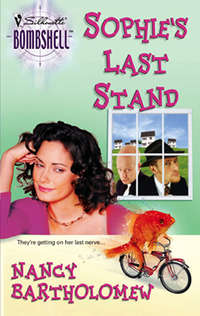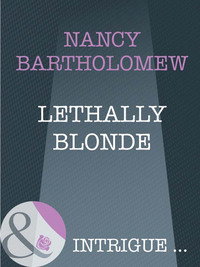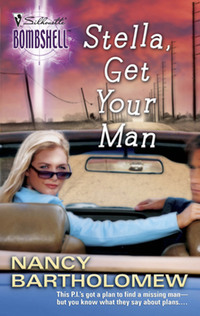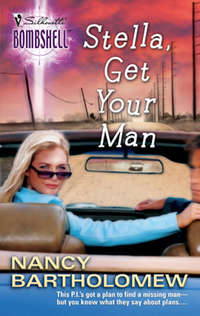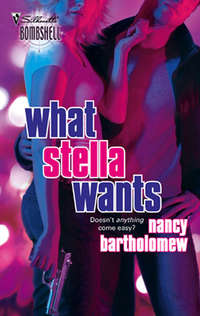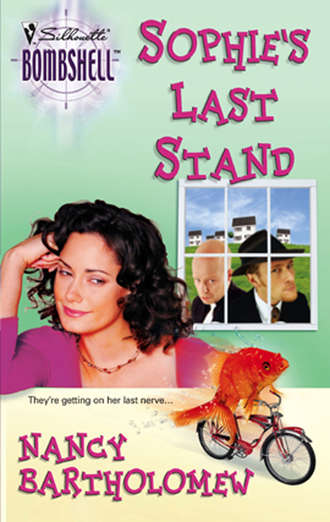
Полная версия
Sophie's Last Stand
“I love it,” I said, but I was thinking, I’ll be killed for sure if I stay in Philly. It’s only a matter of time. Besides, what school administrator in Philadelphia would renew the contract of a kindergarten teacher who’d been married to Nick the Dick?
“You live in Grandma’s old house,” she attempted to remind me. “You complain about it constantly.”
“I rent the place,” I said. “Uncle Butch owns it and I bitch because he won’t fix a damn thing. And if you want to talk about crime, look at my neighborhood. How many homicides do you think South Philly has a year? Probably more in a week than New Bern has in a year. Since Nick’s been in jail I’ve been mugged twice and had the house broken into three times!”
“Yeah, but there’s cops up there, lots of them.”
“Darlene, there are cops everywhere.”
“Sophie, think about it. This is a small town. You’re single. You really want to leave Philly for this?”
I stared at her. She was in the same boat as I was and suddenly she didn’t think New Bern was such a great town? What was this all about?
Like a mind reader, Darlene honed in on me. “Look,” she said, “I moved down here because Ma and Pa retired here. They put on the pressure, the guilt. ‘We’re old,’ they said. ‘Who will take care of us?’ So I came. Why not? I was single. But finding a man here is like winning the lottery. It just doesn’t happen.”
Mr. Wonderful flashed across my mind but I shoved him out. “Good, I’m not looking for a man. Ma and Pa have been after me to move down here, too. Why not? What do I have to lose?”
Maybe I could start over.
Darlene was looking even more anxious. “You don’t have a job,” she said.
“I teach school, Darlene. I can work anywhere. I’ve got all summer to find something, and besides, I’ve got the money Aunt Viv left me when she died. With what this place costs I could buy it and fix it up and still have a little money in the bank.”
Darlene didn’t look convinced.
“Look, Joey moved down with Angela and the kids. That didn’t turn out so bad, did it?”
“That’s different,” she said, pouting.
I got to the heart of the matter then. “Darlene, Nick’s not gonna be in prison much longer. You think I don’t know he’s carrying a grudge? You think he won’t haunt me, trying to make my life a living hell? You think I want to walk down the street every day waiting for the time I round a corner and there he is? Do you think I don’t see the looks on the faces of the people we know? They’re thinking, There’s Sophie, the pervert’s ex-wife. You think I don’t know this and feel it every time I walk out my front door? Darlene, the man took pictures of me naked in the shower. He videotaped us making love and sold copies on the internet for $14.95. It’s not the sort of thing you live down easily.”
I couldn’t bring myself to tell her how they didn’t just look, they yelled, hurling insults and obscenities at me. I didn’t want her to pity me, or worse, to be afraid for me. I was Darlene’s big sister, not a victim to feel sorry for and take care of. Not me.
But Darlene looked sad anyway, like she saw through me, like she was feeling my life and it hurt. Something inside me snapped then, and before I could stop myself, the words tumbled out.
“Even if I wanted to meet somebody, even if I actually met a man up in Philly,” I said, “what are the chances he’s seen those pictures of me? Even if he hasn’t, what chance is there he won’t know who I am? Everybody knows what Nick did, Darlene. I see it in their eyes. I feel dirty even when I’ve just bathed. Can’t you see what I’m telling you, honey?”
Darlene’s eyes filled with unshed tears and she nodded slowly.
“I want something new. Something fresh, where I don’t have to feel ashamed just walking around in my own neighborhood. I don’t want to live in the subdivision with you guys. I don’t want to bust up what you’ve got going with Ma and Pa. I just want to be somewhere where people love me.”
Darlene was crying now. She looked up at the broken-down house and back to me. “Okay,” she said, her voice soft with tears. “I get it. If this is what you want, at least have it inspected. Bring Joey and Pa over—let them check it out, too. And no matter what,” she said, straightening up and becoming her know-it-all self, “don’t pay the asking price. This dump has probably been on the market forever. Lowball ’em.”
I threw my arms around her chunky shoulders and hugged her. “Thanks, honey. Don’t worry. It’ll work out fine, you’ll see.”
We turned away then, walking back toward the car and jabbering away about shutters and paint colors. I was so lost in my new house trance that I almost missed it, the little prickle of awareness that made me look up and stare out ahead of us.
Mr. Wonderful from the chapel stood in the middle of the sidewalk, the folded up card table in one strong hand and two Scouts by his other side. His smile seemed to reach out and cover me. His presence felt like an electrical current that arced from his body into mine. I had the foolish urge to run to him and say, “Hey, guess what? I’m going to buy that old house around the corner.” But of course, that would be crazy. So instead I looked away, kept on babbling to Darlene and walked right past him.
“Okay,” she said, when we were a half a block away, “what in the hell was that?”
“What?”
“Don’t do that,” she said. “You know what. That guy. What was with you and that guy? How do you know him?”
“I don’t.”
“Sophie, that look, that energy between you two. You know him.”
“No, really, I don’t. I just bumped into him, that’s all.”
Darlene sighed. “That was fate,” she said. “He is your destiny and you walked right past him.”
“Like a fish needs a bicycle, Darlene,” I said.
“Start peddling,” Darlene said. “’Cause, honey, that was some powerful karma, if you ask me.”
“I didn’t. It wasn’t. And I don’t want any complications in my life.”
Darlene was muttering to herself. It sounded like she was saying, “We’ll see. We’ll just see about that.”
I looked down at the brochure from the dream house and forced my attention onto the things I could control in my life. I could make this dream happen. I could turn a pile of wood and weeds into a home. But turning a smile into a relationship, now that was just plain foolish. At least the house was a sure deal. A house doesn’t vanish like a puff of smoke. A house is real. You can reach out and stroke the wood, feel the walls solid and sure. A house is what it is; it doesn’t lie. A house doesn’t write letters from prison saying you’ve ruined its life. A house doesn’t threaten to hunt you down and kill you.
Chapter 2
M y brother, Joey, is a poet. I don’t know if Pa will ever recover from this. If Joey didn’t look and act so normal on the outside, I think Pa might’ve disowned him. As it is, Pa, the retired ironworker, just ignores the poetry part and tries to believe that Joey’s simply an English teacher, a college professor. Each year, when Joey’s newest book comes out, Ma carefully lines it up with the others on the top row of the bookshelf, and there it stays, never read by Pa and misunderstood by Ma.
Joey, for his part, doesn’t spout off rhymes or stare into space all misty-eyed like Darlene. Joey plays rugby on Saturday afternoons. He roughhouses with his kids, is openly affectionate with his wife and can fix anything. Pa holds this out as incontrovertible evidence that Joey is somehow just passing through a phase with his writing.
“Poetry, schmoetry,” Pa says. “He don’t mean nothing by it.”
Ma’s kind of flattered. It appeals to the well-hidden, romantic side of her personality. “He’s writing about growing up,” she says, like this is a tribute.
I’ve read Joey’s stuff, the stuff he doesn’t show our parents. Believe me, it is not a tribute. He talks about all the things we good Italians don’t mention, like the brutality of growing up Catholic, or the pain of living poor when the layoffs happen and the jobs don’t come.
Joey feels everything. He cried when Angela stood holding her father’s arm in the back of the church, right before she walked down the aisle and became his wife. He sobbed when his first baby, Emily, was born and he held her in his arms. He cried when the second baby, Joseph Jr., arrived two years later and cried yet again when the third baby, Alfonse, completed the trio. He laughs hard, he plays hard and he loves his family, all of us, more than we can ever truly know. I watch Joey so I see all of this, but my parents, they miss out sometimes when they don’t allow themselves to see the real Joe.
It was Joey who saw the dream in my old house. Joey who convinced Pa that this would be okay, that we would all pitch in and it would actually be fun, a family thing. He showed up for the inspection with Pa in the car, the two of them ready to find fault with my future acquisition. Instead, Joey wound up rubbing his hand lovingly along the old banister, kneeling down to show Pa the strength in the ancient heart pine floors, and crawling up under the rafters in the attic to feel the “bones” of my new home. It was Joey who won Pa over, and Joey who cheered me on when I had doubts.
“Soph, look,” he said, his fingers tracing the pattern in an etched glass window, “you can’t find detail like this anymore. It’s art. Oh, kid, you have scored here. What a deal!”
Joey didn’t let me back down on my dream, not for one minute. “You’re a Mazaratti, Soph,” he said. “Look at you—you divorced that piece of crap husband, you took your name back, you remembered where you come from and now you’ll be where you belong—with family, starting over.”
He drove the rental truck up to Philly with me that very week, loaded my belongings and waved goodbye to the old neighborhood as we pulled up onto I-95 heading south.
“Don’t look back,” he said. “I never have. I don’t miss it and I didn’t leave half the baggage you’re dumping. I say good riddance to bad rubbish, Soph. Step out there, make yourself a life and don’t worry about Philly ’cause Philly ain’t gonna worry about you.”
It was also Joe who convinced Ma that the reason I didn’t move into the planned community with them and Darlene was because I had a mission to teach inner city kids and needed to be close to my future students. Now this was all bullshit, but Ma bought it on account of it was Joey doing the sales pitch.
So it made sense then that it was Joey I called when I got into trouble—big trouble. I called him at his community college office, before I called Pa and before I could control my emotions. I called him not because I didn’t know what to do and he did, I called him because he would know what to say. He would know how to put the picture back in focus without shattering the lens.
“Joey,” I said, when he came to the phone, “you gotta get over here, quick.”
“What’s wrong?” Joey’s voice was strong and deep and, most of all, calm.
“I was…I was working in the backyard….” I clutched the cell phone, pressing it to my ear. I kept gulping, swallowing, standing there in the weeds, staring at the ground and trying not to lose control. “You know, hacking at those vines so I could get to the trash pile and haul it out to the bin.”
“Yeah?” Joey didn’t get impatient like Pa would’ve done; he let me tell the story in my own time and manner.
“I hit something, Joe, with the machete, and when I did…” I swallowed very hard, looked at the long, thin blade stuck where it had landed, and tried to continue. “It, like, sank into something—you know, something soft?”
“Sophie,” Joe said, “tell me about it.”
“Joey, there’s someone dead in my backyard. I was just chopping weeds and I hit her. Joey, I think I might’ve killed somebody.”
I heard him exhale. “I’m coming,” he said, and hung up.
I stood there as if the gravity of the universe was pinning me to the planet, and stared at the body in front of me. If I’d really thought about it, I would’ve realized that she was probably dead before I hit her. How else could she have come to my backyard, rolled up in dark green plastic and positioned herself beneath bushes and weeds, waiting for my impending discovery? Who alive or conscious would wait for death like that?
Besides, there was no blood when I hit her. I mean, I knew, instantly, that I’d hit something that was flesh and blood. I shuddered because I could still feel the initial hit and then the sinking in of the blade. I’d knelt down, tugged at the plastic and fell backward as it gave in my hand, revealing the slim arm of a woman, the side of her body exposed to the bright morning sunlight.
That’s when I’d called Joe. Now I looked back at her and realized how I’d known she was dead. It was the paleness of her skin, an ashy-gray tone that live bodies just don’t have. The machete blade stuck upright from the middle of her chest, but there was no blood. I reached down nonetheless and touched her forearm. It was cool, even on a hot summer’s morning. She was definitely dead.
I lifted the cell phone once again and punched in 9-1-1. I drew in my breath and forced myself to say the words slowly and clearly. “My name is Sophie Mazaratti, I live at 618 West Lyndon Street and I have just found a dead woman in my backyard.”
It didn’t take much beyond that to get the ball rolling. The police station is only two blocks away. I live in the highest crime area in town. Three cruisers were in my driveway before I could hang up. The officers found me still rooted to the spot, the cell phone clutched in my hand and the body sprawled out in front of me.
“Jesus,” the first one said.
I crossed myself and turned around to face him. He looked like a kid, like he wasn’t old enough to shave. His eyes were huge when he saw the body, and he stopped just as I had, frozen, his ruddy complexion paling as the reality of what he was seeing hit him.
I could see his fingers twitch and he seemed to want to unsnap his gun even though a gun would be no protection against a dead body. He looked at me. I didn’t look like a threat—at least, I hoped not. I could see my reflection mirrored in the window of his squad car. I looked like the Blessed Virgin only with dark, curly hair and blue eyes. I can’t help that I look like a kindergarten teacher, and at this moment I was actually thankful. With a dead body in the backyard and my fingerprints on the machete, innocent and harmless were just the qualities I needed to portray to this trigger-happy first responder.
The young cop’s partner arrived, paired up with two other cops from the two other cars. Everybody was young and anxious and clearly experiencing something out of the ordinary. Hell, a machete sticking out of a body, that’s not ordinary in almost anyone’s experience. The three other cops stopped short in a clump of dark uniforms and aviator sunglasses. Two were women. One of the women was tall and big-boned, but the other one, a blonde, was about my size. I found myself ridiculously thinking, I could take her. What is it about cops that make people start feeling claustrophobic?
“Did you call us?” the blonde asked.
I looked back at the body. I sort of figured that part would be obvious. Who else was gonna call, the victim? “Yeah. I’m Sophie Mazaratti and that, there, is a dead body.”
One of the men snickered softly, then spoke into the microphone clipped to the front of his uniform. In the distance a siren wail started, then stopped. Dead. No need to rush—time was no longer a concern.
“Ma’am,” the big woman said, “why don’t you come with me and I’ll take your statement.” She looked at the first officer, the young redheaded boy. “LaSalle, secure the scene.” She looked past him, over the fence, into the neighboring backyard and on toward the projects. She was formulating an opinion.
Joey arrived right after she asked, “Was the machete already in her chest or did you do that?” I didn’t like her tone.
Joey reached my side just as I was answering her. “Yeah, well, I figured since she was already dead I might as well chop her up so’s she’d fit in the trash can better.”
“Soph,” Joe cautioned. “Let it rest.”
I turned around and went to him, right into the strong arms of my brother. “Joe, she’s a fucking idiot who’s trying to get wise,” I muttered in his ear. “I was just letting her know I don’t play.”
“Enough,” he whispered. “Let me talk to her.”
He turned away from me, loosening his grip and taking a step to offer his hand to the cop. “I’m Joe Mazaratti, Sophie’s brother. Listen, she’s a little upset. I mean, it’s a dead body. I guess I don’t have to tell you we’re not used to this sort of situation.”
The officer shook Joe’s hand. She wasn’t charmed yet, but she was on the slippery slope headed downhill to him. Women couldn’t resist Joe. I don’t know what it is. He’s good-looking enough, but he’s going bald. Personally, I think it’s his eyes. He’s got the Mazaratti eyes—intense, warm—and when he finally smiles at you, it’s like winning a prize. Of course, it could just be that Joe’s a nice guy and it’s genuine with him. If he likes you, you know it.
Joe was reading her nameplate. “Officer Melton?” He sounded the name out slowly and smiled. “How can we be of further assistance? You want Sophie here to come down to the station? You want something to drink, water? Move our cars? What?”
Melton, given too many options, hesitated briefly. “No, Mr. Mazaratti, if y’all could just wait on the front porch, or inside the house, that’s all we need right now. They’ll send out a couple of detectives and they’ll probably want to talk to Ms. Mazaratti, ask her a few questions.”
She didn’t even look at me now. It was all Joe. But that was fine by me. I was watching the cops string yellow crime scene tape across my backyard and feeling like everything was happening at the other end of a tunnel.
Joe took me by the arm and walked around the side of the house, up to the front porch steps. We climbed them and slowly sank down onto the top riser. Joey waited until Officer Melton joined the others in the backyard before he asked for the full story. He made me tell him twice, asking questions until at last I could see he was satisfied and had an accurate picture in his head of the events leading up to my finding the body.
“You don’t know who it is or anything, do you?”
I frowned at him. “Joey, I don’t know hardly anybody in this town but you guys. Besides, all I saw was an arm. It’s kind of hard to identify somebody by their arm, although she did have a kind of unusual arm.”
Joey was on it. “What do you mean unusual?”
“Well, she had this kind of tattoo on her knuckles,” I said. “Letters, you know, spelling out a word.”
“What word?”
“Hate. And then there was a, like, dragon symbol above that, on the back of her hand, but kind of small, toward her thumb.”
“You’re right,” Joe said. “That’s weird for here, but up North, you know that would be considered normal.” He laughed then and I had to laugh with him. It was eerie, laughing in the presence of a dead body, but it was like laughing in church—you know you shouldn’t, and that just makes it all the funnier.
The detectives pulling up in their unmarked, but totally obvious, sedan must’ve thought we were crazy. I saw the driver look up with a puzzled expression, check something on a piece of paper and then look back at the house. He was probably thinking he had the wrong address, what with us laughing like that, but the cop cars in the driveway confirmed it. They were on the scene with lunatics.
The crime scene van pulled right up in front of them and two technicians piled out and scurried up the driveway. If Joey’s stifled laughter and my giggles seemed odd, they weren’t stopping to mull it over. They had business in the backyard and time was wasting.
The detectives, though, were cooler. Detectives don’t rush. Rushing means you’re not in control, and I knew from Philly that detectives were always in control. The doors to the sedan slowly swung open and the two men got out of the car, the driver for a moment obscuring my view of the second detective.
The driver, a reed-thin older man, moved and started walking up the walkway. The second detective followed, head down and face partially obscured as he spoke into his cell phone. But even from a distance, even with his head down, I felt the shock of recognition. Mr. Wonderful was about to walk back into my life and this time I couldn’t run away.
He saw Joe first. I stayed on the porch, half-hidden by the overgrown magnolia tree, half hiding behind the porch pillar, watching. It had been almost six weeks since that first meeting in the tiny chapel, since the day I’d passed him on the sidewalk like there wasn’t a thing to it but two strangers smiling politely. Now here he was, poised on the edge of my life, about to change everything. But it was Joe he recognized.
I watched the detective snap the cell phone shut and follow his partner toward Joe, who stood in the driveway. Mr. Wonderful wore dark, well-tailored trousers, a white starched shirt and a subdued red tie. It picked up the intense gray color of his eyes, deepening them. His skin was darker, more tanned, as if he’d spent even more time outdoors since I’d first seen him. He moved like an athlete, graceful but with a coiled energy that seemed ready to spring forth at any opportunity.
I saw the detective’s eyes light on my brother, and the broad smile that had first drawn me to him appeared, un-checked, as if he had forgotten that this was a homicide scene and not just a chance meeting between two friends on the street.
Joe had the same sort of smile on his face, easy and warm. As I watched, he clasped Mr. Wonderful’s hand, then drew him in and hugged him, the way we do family or close friends up North.
Italians don’t love casually. We take hostages. You are either all the way in with us or a stranger. There is no phony Southern “Y’all come back now, hear?” If we don’t want to see you again, we don’t invite you back. I could tell just by watching that Joe knew this guy, knew him well and liked him. My heart flipped over and I rubbed my palms across my thighs, smoothing the fabric of my faded overalls.
“It’s a mess,” I heard Joe say. “My sister Sophie just moved down from Philly…gonna live in her dream house…now this. Marone.”
Mr. Wonderful was looking at the scene, over Joe’s shoulder, not seeing me there on the porch. He shook his head, agreeing with my brother.
“You know the district,” Mr. Wonderful said. “It’s transitional. These things happen sometimes…probably a hooker who got dumped after a bad deal.” He shook his head again, but his eyes darkened and his expression was grim. His good humor was gone and he was all business.
Mr. Wonderful looked at my brother and the smile flashed back for a second. “Joe, you got a sister? Why didn’t you tell me? She doesn’t take after you, does she?” Now he was grinning, trying to lighten up the situation for my brother.
Joe touched the top of his scalp and grinned. “No, Gray, she’s got hair.”
His name was Gray. It was perfect for him. It matched his eyes. Oh God, I was drooling like an idiot.
But Joe didn’t waste time. “Sophie,” he called, turning and revealing my hiding place on the steps. “Come here. I want to introduce you to someone.”
I stood, my hand touching the porch rail so I wouldn’t trip walking down the steps because the way I felt, I couldn’t trust my body not to betray me. I saw him do a double take, as if he couldn’t believe this was happening, either. I saw the easy smile flash, then grow tentative as I suppose he remembered me passing him on the street like a stranger.
I smiled back because I couldn’t stop myself. I was suddenly so very glad to see him. My brain wasn’t working right. My inhibitions, the stuff that would normally put on the brakes and stop me from looking foolish and desperate, were gone. Instead it was just me, smiling up like he was someone I already knew well, someone I wanted to keep close to me.
“She don’t always look this good,” Joe said, picking up on something, but uncertain of what it was. “She’s down here, what, two weeks? Already she’s with the overalls and the work boots.”


